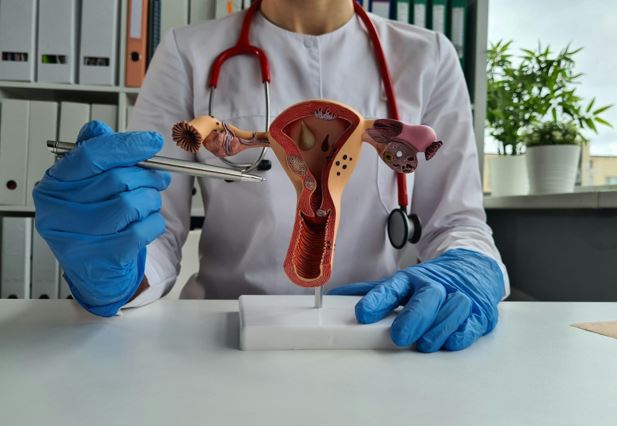7 Misconceptions to Know About Hysterectomy Procedures
When women think about getting a hysterectomy, they often feel confused by all the different facts and myths that surround the procedure. It’s not uncommon for misconceptions to swirl around such a significant surgical decision, leading to anxiety and confusion.
To make smart decisions about your health, you need to know the truth behind these myths. In this blog, you will explore seven common misconceptions about hysterectomy procedures Melbourne.
1. Only Option for Uterine Issues
Many women believe that if they have issues like fibroids, heavy bleeding, or endometriosis, a hysterectomy is their only choice. On the other hand, this is not the case. Without resorting to surgical procedures, there are several treatment options that can assist in the management of these conditions.
Medications, hormonal therapies, and procedures that are less invasive can frequently be effective in treating the condition. It is common practice for medical professionals to advise patients to consider all available options before settling on a hysterectomy.
For women, it is necessary to discuss their particular conditions with a healthcare provider in order to investigate all of their available options. Understanding this can help women make informed choices about their health.
2. Always an Emergency Procedure
As a result of severe pain or bleeding, there are some individuals who believe that it must be done speedily. Although there are some cases that may require immediate medical attention, the majority of hysterectomies are planned surgeries.
During the course of a thorough evaluation and discussion of symptoms, medical professionals frequently suggest a hysterectomy. Patients are typically given sufficient time to consider their alternatives and get themselves ready for the procedure.
A better understanding of what to anticipate and how to get ready for recovery can be gained through the use of planned surgical procedures. Women need to know that a hysterectomy can be a thoughtful choice rather than an emergency response to a problem.
3. All Hysterectomies Involve Complete Removal of the Uterus
A hysterectomy can be performed in a variety of different ways. When a subtotal or partial hysterectomy is performed, only the upper portion of the uterus is removed, while the cervix is left in its original position. A total hysterectomy removes the entire uterus and cervix.
Both the woman’s current medical condition and the recommendations of the attending physician will determine the type of hysterectomy that is performed. Understanding the different procedures can help women feel more informed and less anxious about their choices.
Discussing options with a healthcare provider can clarify what to expect from each type of surgery.
4. Leads to Weight Gain
Weight gain is not a guaranteed outcome of the surgery, even though some women may experience changes in their bodies as a result of the procedure. Managing one’s weight is largely dependent on a number of factors, including one’s lifestyle, diet, and level of physical activity.
After a hysterectomy, women can still maintain a healthy weight with proper nutrition and physical activity. It’s crucial to discuss any concerns about weight and lifestyle with a healthcare provider. They can provide personalized advice to help manage any changes that may occur after surgery.
5. Impacts Sexual Function Negatively
Some individuals are concerned that having a hysterectomy will have a negative impact on their sexual function. They may think that removing the uterus will lead to loss of pleasure or changes in sexual desire. However, many women report no significant changes in their sexual experiences after a hysterectomy.
In some instances, women who were previously experiencing pain or discomfort as a result of their condition may even feel better after undergoing surgery. When it comes to addressing any concerns, communication with partnerships and healthcare providers is absolutely necessary.
It’s also important to note that emotional well-being and physical comfort are key to a satisfying sexual life. Every woman’s experience is unique, and discussing individual concerns can help ease fears.
6. Simple and Quick Fix
Despite the fact that the procedure itself can be carried out in a matter of hours, the recovery process can frequently take several weeks. As they heal, women might experience a variety of side effects, including discomfort, fatigue, and others.
It’s important to understand that a hysterectomy is a major surgery and requires proper care during recovery. Setting realistic expectations about the recovery time and potential challenges can help women prepare better.
Consulting with a healthcare provider can provide clear information about what to expect before and after surgery.
7. Women Will Experience Menopause Immediately After Surgery
It is possible that menopause will occur immediately if the ovaries are removed during the procedure. But if the ovaries remain, women will likely continue to have their menstrual cycles until they naturally reach menopause at a later age.
Understanding this difference is crucial for women considering a hysterectomy. It’s essential to discuss the removal of ovaries and its implications with a healthcare provider. Knowing what to expect can help women prepare for changes in their bodies after surgery, whether immediate or gradual.
Debunk Misconceptions About Hysterectomy
Remember, every woman’s experience is unique, and it’s crucial to consider all options and potential impacts before proceeding with any medical procedure. Take charge of your health, and don’t hesitate to reach out for support and guidance as you navigate your choices. Your well-being is paramount, and having the right information is the first step toward making the best decisions for yourself.






